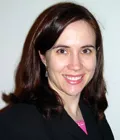Alumni Reflections
Many of our majors, and some minors, go on to pursue careers as professional classicists, at both the college and secondary levels. Swarthmore students well prepared in both Latin and Greek are competitive candidates for excellent graduate programs in classics, and in related fields such as medieval studies, English, history, and archaeology. In recent years Classics majors have been admitted to graduate programs at UNC-Chapel Hill, Penn, CUNY Graduate Center, Yale, Harvard, Princeton, University of Chicago, and Stanford. Others have successfully obtained teaching positions in secondary schools, both public and private; it is worth mentioning that there is a significant demand for teachers of Latin, particularly at the secondary level, and some states, including Pennsylvania, make it possible to teach Latin in public schools before obtaining professional certification.
Most majors and minors have successfully pursued careers only tangentially related to classics, often after attending professional school. There are Swarthmore classicists in law, medicine, business, art, and music, and many other walks of life.

"What I remember most was the faculty's encouragement to question and probe the authors we were reading. Now, I work in a scientific field, but I am thankful every day for my strong liberal arts background. It taught me to explore inner meaning, rather than taking things at face value."
Yolanda Rosi Helfrich '97
Ann Arbor, Mich.
Assistant Professor, University of Michigan Department of Dermatology
Web site

"The Greek literature and philosophy I studied at Swarthmore remains crucial to my work in art. The questions posed in classical texts are inexhaustible, and although my pool of source material has expanded over the last few years, I still find my essential interest in classical thinking undiminished."
Benjamin Tiven '01
New York, N.Y.
Photographer
Web site

"The classics faculty treats the discipline as a discussion across time rather than a dry set of books to read and facts to learn. Studying what people said and did two millennia or more ago gives one a good sense of what truly endures in the human condition. Far from leaving one with a sense of having seen it all, study of the classics helps one to recognize what really matters and what will fade away. It also gives one a leg up on the New York Times crossword puzzle."
Ben Rothfeld '91
New York, N.Y.
Director of Marketing Strategy, Acxiom Digital
Web site



